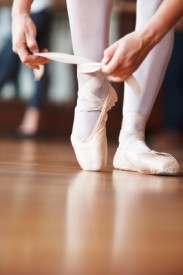
Anyone who has ever conscientiously taken on the challenge of learning a skill – from playing a musical instrument to speaking a foreign language to simply improving one’s penmanship – understands the importance of practice.
As a neuroscientist, practice fascinates me because it is all about establishing pathways in the brain. The ability of the brain to form and re-form routes for specific thought patterns, and for those routes to become more deeply ingrained the more we exercise those thought patterns, makes it possible for us to learn and refine a multitude of wonderful skills throughout our lives.
The Best Practices
In her recent article “ The Myth of ‘Practice Makes Perfect,’” Annie Murphy Paul reviews a book by Gary Marcus, a cognitive psychologist at New York University who studies how the brain acquires language. Marcus’ book, Guitar Zero: The New Musician and the Science of Learning , discusses how learning a new skill, such as playing the guitar, requires practice—but the right kindof practice.
Certainly practice requires a commitment of time. But more importantly, to be truly effective it requires a commitment of the mind – a deliberate intent – for optimal learning to occur.
According to Marcus, “Studies show that practice aimed at remedying weaknesses is a better predictor of expertise than raw number of hours; playing for fun and repeating what you already know is not necessarily the same as efficiently reaching a new level. Most of the practice that most people do, most of the time, be it in the pursuit of learning the guitar or improving their golf game, yields almost no effect” (2012).
In other words, the best practicedemands that the learner be attentive to his or her errors, weaknesses and deficiencies, and consciously work to remedy them.
From a neuroscience perspective, this observation points to a natural conclusion. Research has shown us time and again that the more we utilize certain neural pathways for building skills – such as throwing a ball or multiplying by fives or recalling all fifty state capitals – the more effectively we ingrain those patterns in our brains and the more automatic the correct skills become.
The Hardest Work
Imagine the budding guitarist bent over her instrument. At 11 years old, she focuses on learning three more chords beyond the three she learned last week. She’s having great trouble with that F, but she’s well in control of the other five. Should she spend her hour of practice playing the music she truly enjoys and save that F for another day, preserving her positive attitude? Or should she feel her frustration, work through it and spend her time on ironing out that problematic F, again and again and again?
Which is the better practice?
Researcher Anders Ericsson of Florida State University wrote that “deliberate practice requires effort and is inherently not enjoyable” (1993). Long hours spent repeating the easy or already-mastered work is simply not enough and not as effective. The best practice requires us to dig deep and uncover our weaknesses. With a greater focus on our faults, we become better able to find them and develop solutions to remedy them.
Robert Duke of the University of Texas-Austin demonstrated this effect when he and his team videotaped piano students as they practiced a challenging concerto, and then ranked the quality of their final performance. In the end, it was not the repetitions nor the hours of practice put in. The best performers zeroed in on their errors and strove to fix them before moving on. (2009)
Behaviors for Success
The students in our everyday classrooms have an advantage over the guitar student practicing at home. She has to work independently the majority of the time, interacting with her music instructor only once or twice a week; the lion’s share of reinforcing her learning and practicing behavior is her personal responsibility.
In our day-to-day classrooms, we get – relatively speaking – much more time to help our students devise strategies and establish behaviors for success. Through helping them learn how to face the hard work, to focus on what’s difficult or wrong and make it easier or right, we can help them to establish those all-important neural pathways that will lead to success.
For further reading:
It’s Not How Much; It’s How: Characteristics of Practice Behavior and Retention of Performance Skillsby Robert A. Duke, Amy L. Simmons and Carla Davis Cash
Related Reading:
The Brain Gets Better at What it Does: Dr. Martha Burns on Brain Plasticity

